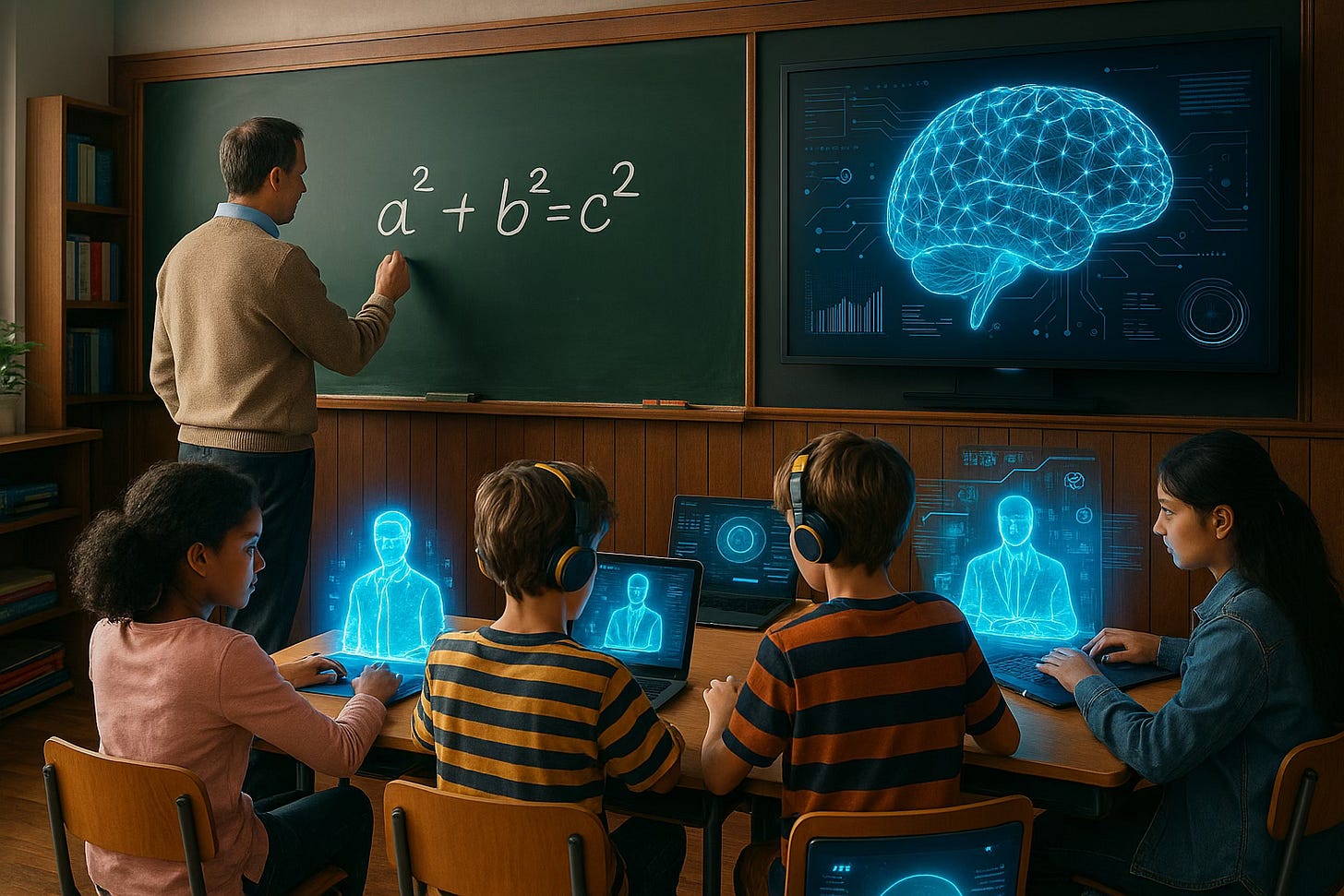AI Tutoring vs. Traditional Class
Can Two Hours Be Enough?
What if school took two hours? That’s the bet behind “Alpha School,” a fast‑growing U.S. microschool model using AI tutors to compress core academics into short, individualized sessions—freeing the rest of the day for projects, sports, or family time.
The Alpha Experiment
Alpha promotes a 2‑hour academic block driven by adaptive AI tutors and mastery‑based pacing. Backers say one‑to‑one software guidance outperforms one‑to‑many lectures, letting students advance as soon as they demonstrate competency. Public messaging from the school emphasizes “2‑hour learning” and expansion to multiple U.S. cities. Source
Investor Bill Ackman has become a prominent booster—publicly describing a day that begins with two hours of a personalized AI tutor and then “leadership/real‑world” blocks. Reporting indicates he’s an informal ambassador rather than a direct investor. X – Source
What’s Claimed—and What We Know
Personalization & speed: Alpha and its supporters argue AI can accelerate mastery and cut time‑on‑task dramatically. Source
No traditional teachers (in some implementations): Local coverage of a Scottsdale campus describes core academics taught by AI for two hours daily. Source
Microschool context: The model sits within a broader tech‑led push toward small, customizable private schools that lean into AI. Source
Critiques & Trade‑offs
Researchers and educators caution that compressing academics risks losing social development, teamwork, and the routines provided by longer school days. Some coverage also flags Alpha’s stance on culture‑war issues (e.g., DEI), which may shape who feels welcome and how the model scales equitably. Source – Source
Efficiency vs. Experience
Efficiency: AI can target gaps and reduce idle time.
Experience: Traditional schools provide community, unplanned interactions, and shared rituals.
Equity: A short day presumes families can supply childcare and enrichment—an assumption that may widen gaps.
Second‑Order Effects to Watch
Two‑track schooling: AI‑first microschools alongside conventional public systems.
Labor shifts: Fewer classroom hours could reconfigure teacher roles toward coaching, oversight, and SEL.
Regulatory questions: Attendance, accreditation, and funding formulas weren’t built for 2‑hour school days.
The Bottom Line
AI tutoring is powerful for certain kinds of instruction. But education is more than knowledge transfer. As Alpha expands, the central question isn’t just “does it work?”—it’s what do we want school to be: a quick dose of AI efficiency, or a slower, community‑rich journey through learning and life?

fascinating! such a loaded concept. in some ways certainly beneficial in terms of efficiency and attention spans and budgets over time, but yes, some glaring issues like limited socialization and whether what AI would be teaching is the “right” perspective (though that’s an issue even with human teachers who lace their own views and opinions into lessons). i have so many mixed feelings about this!